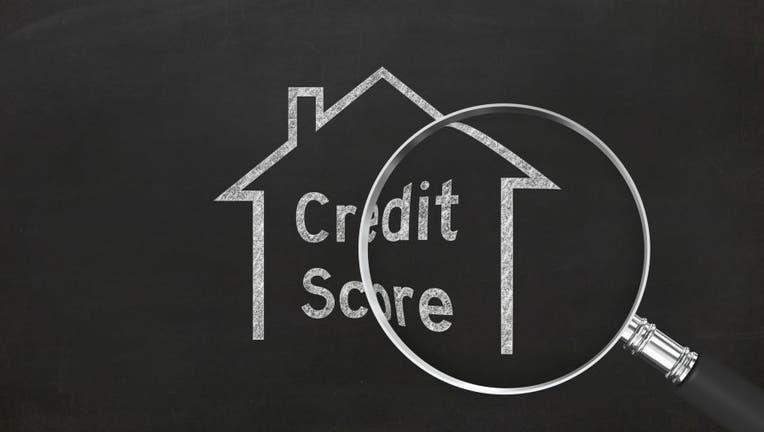What credit score do you need to buy a house?

Want to buy a home? Make sure your credit score is in tip-top shape first.
For many people, buying a home is the most expensive investment they’ll ever make. Preparing for the investment can take a bit of time and preparation. Spending time preparing for a home purchase can save money, so it’s worth trying.
One essential part of preparing to buy a home is understanding what happens to your credit score. Lenders use your credit information, specifically your credit score, to determine if you qualify for a home loan and how much they can lend you. Additionally, your credit score — whether you have poor credit or excellent credit — can affect your interest rate (which, in turn, affects your monthly payment).
Before you begin applying for a home loan, make sure you find the right mortgage rate for you. Credible can compare multiple vendors and provide you with personalized rates within just minutes — and it doesn't impact your credit.
If you're not pleased with the rates you're given, take some time checking your own credit and make any changes necessary to increase your credit score. After all, credit scores change over time.
This is the average credit score you need to buy a home
The score required to qualify for a mortgage loan varies by loan type, location and lender — but some scoring models will help you estimate the minimum score you need to get a loan.
You can also use Credible's free tool to see what kind of mortgage you can afford as you shop for homes.
To qualify for a Federal Housing Administration (FHA) home loan, you need a minimum credit score of 500. If your score is between 500 and 579, you’ll need to provide a down payment of at least 10 percent. If your score changes to above 580, you may be able to qualify for an FHA loan with a down payment of 3.5 percent or less.
HOW NEW FICO SCORE CHANGES AFFECT YOUR CREDIT
If you need a jumbo loan (a mortgage for an amount that exceeds conforming loan limits), you’ll need an excellent credit score. Additionally, if you want to apply for a private loan (not FHA), the lender will likely require that you have a higher score. You should have a credit score of at least 680 before you apply for a jumbo loan and a score of 650 or higher to qualify for conforming loans not insured by the FHA.
Common credit information factors that impact your credit score:
Credit age
Credit utilization
Credit history
Mix of credit
Amount of debt
Length of credit history
New credit (and inquiries)
Payment history (i.e. paying your bills on time)
Your payment history and credit utilization make up most of your score, so these two areas will have the most considerable impact in helping or hurting your credit.
CAN YOU NEGOTIATE YOUR CREDIT CARD DEBT?
To secure the best rates, aim for a credit score of 680 or higher, no matter what type of loan you seek (a personal loan, home loan, auto loan or beyond).
How to improve your credit score to get a mortgage
If you have a bad credit score, and you’re still interested in purchasing a home, there are a few things you can do.
Save for a higher down payment
Show lenders you’re serious about your purchase by providing a larger down payment. If you have poor credit, presenting a down payment of 20 percent or more can help shift the odds of approval in your favor.
Apply for an FHA loan
If your score is below 650, an FHA loan could be your best option. Borrowers with scores in the low 500s can qualify for a loan, though you will be required to provide a down payment of at least 10 percent of the total loan.
Improve your credit score
If you want to avoid higher interest rates and higher monthly payments, take time to improve your credit score by paying off debt and making bill payments on time every month.
HOW STUDENT LOANS AFFECT YOUR CREDIT SCORE
Is it possible to buy a house with bad credit?
You can purchase a home with poor credit, though your options will be limited and you may have to pay a higher interest rate. According to a report from the FHFA, only 19 percent of borrowers in 2016 had a credit score below 620. While it is possible to get a home loan with a lower score, it may be difficult. If your score is lower than 500, you won’t qualify for a home loan at all.
How fast can you raise your credit score?
Raising your credit score depends on the type of negative marks you have and the actions you take right now. For example, missed payments can affect your credit score for up to 18 months, whereas closing an old account affects your score for about three months.
Additionally, your lenders may only submit information to credit scoring companies once per month. Aim to check your score about once a month if you’re improving credit habits and seeking score changes. Plan for at least three to six months before you check your credit score for significant changes.
If you’re trying to improve your credit score reduce your debt-to-income ratio, make all your payments on time, earn more money, don’t close any accounts, and avoid applying for new credit cards or credit accounts for a few several months.

